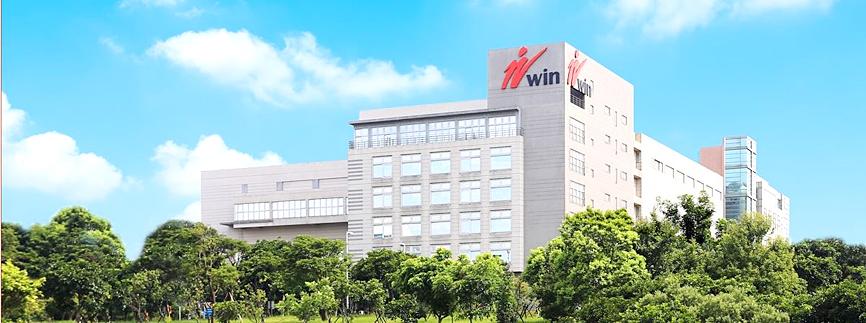The Ministry of Economic Affairs (MOEA) yesterday said it has approved 10 companies’ applications to invest NT$40.7 billion (US$1.47 billion) as part of the government’s Invest in Taiwan initiative.
Printed circuit board maker (PCB) Unimicron Technology Corp (欣興電子) applied for a second round of investment totaling NT$26 billion to add eight production lines in Hsinchu County to expand its flip-chip substrate capacity, the ministry said yesterday.
The company is expanding capacity to meet rising demand from 5G applications, consumer electronics and automotive components, the ministry said, adding that the investment would create 677 local jobs.

Photo: Win Semiconductors official Web site
The new project would bring Unimicron’s total investment to more than NT$50 billion, creating 1,300 jobs.
Unimicron first participated in the Invest in Taiwan initiative in 2019, investing in a Taoyuan plant. The company produces PCBs, high-density interconnection boards, flexible PCBs, rigid-flex PCBs and integrated circuit carriers, among others. Its customers include leaders in the semiconductor supply chain.
The Invest in Taiwan initiative encourages quality industrial investment in Taiwan from returning Taiwanese companies, as well as local firms looking to upgrade their production by providing the businesses with favorable loan terms and other means of support.
Win Semiconductors Corp (穩懋半導體), founded in October 1999 and the first pure-play 6-inch gallium arsenide (GaAs) foundry in the world, is participating in the “roots in Taiwan” category of the Invest in Taiwan program.
Also a returning participant, Win Semiconductors previously expanded its facilities in Taoyuan with the help of the program.
However, in anticipation of capacities running short, it is planning to invest NT$11 billion in the Kaohsiung section of Southern Taiwan Science Park (南部科學園區) to build another 6-inch GaAs foundry. The wafers produced at the plant will serve mobile handset, wireless infrastructure and 3D laser detection needs.
Other applicants approved yesterday were local snack food conglomerate Imei Foods Co (義美食品), bicycle parts maker Super B Precision Tools Co (保忠精密工具), Hung Han Technology Corp (弘翰科技), Ren Yow Industrial Co (仁侑工業), Unlifa Co (允力發), Super B Precision Tools Co (保忠精密), Medserv Biotech Co (長寅科技), Shen Fa Xing Food Co (盛發興食品) and Global Green Material Co (豐溢綠能材料).
Since the program was implemented, the Invest in Taiwan initiative has attracted more than 1,100 businesses to return, reinvest or expand in the nation, pouring in NT$1.55 trillion in investments and creating 123,038 local jobs.

In Italy’s storied gold-making hubs, jewelers are reworking their designs to trim gold content as they race to blunt the effect of record prices and appeal to shoppers watching their budgets. Gold prices hit a record high on Thursday, surging near US$5,600 an ounce, more than double a year ago as geopolitical concerns and jitters over trade pushed investors toward the safe-haven asset. The rally is putting undue pressure on small artisans as they face mounting demands from customers, including international brands, to produce cheaper items, from signature pieces to wedding rings, according to interviews with four independent jewelers in Italy’s main

Japanese Prime Minister Sanae Takaichi has talked up the benefits of a weaker yen in a campaign speech, adopting a tone at odds with her finance ministry, which has refused to rule out any options to counter excessive foreign exchange volatility. Takaichi later softened her stance, saying she did not have a preference for the yen’s direction. “People say the weak yen is bad right now, but for export industries, it’s a major opportunity,” Takaichi said on Saturday at a rally for Liberal Democratic Party candidate Daishiro Yamagiwa in Kanagawa Prefecture ahead of a snap election on Sunday. “Whether it’s selling food or

CONCERNS: Tech companies investing in AI businesses that purchase their products have raised questions among investors that they are artificially propping up demand Nvidia Corp chief executive officer Jensen Huang (黃仁勳) on Saturday said that the company would be participating in OpenAI’s latest funding round, describing it as potentially “the largest investment we’ve ever made.” “We will invest a great deal of money,” Huang told reporters while visiting Taipei. “I believe in OpenAI. The work that they do is incredible. They’re one of the most consequential companies of our time.” Huang did not say exactly how much Nvidia might contribute, but described the investment as “huge.” “Let Sam announce how much he’s going to raise — it’s for him to decide,” Huang said, referring to OpenAI

The global server market is expected to grow 12.8 percent annually this year, with artificial intelligence (AI) servers projected to account for 16.5 percent, driven by continued investment in AI infrastructure by major cloud service providers (CSPs), market researcher TrendForce Corp (集邦科技) said yesterday. Global AI server shipments this year are expected to increase 28 percent year-on-year to more than 2.7 million units, driven by sustained demand from CSPs and government sovereign cloud projects, TrendForce analyst Frank Kung (龔明德) told the Taipei Times. Demand for GPU-based AI servers, including Nvidia Corp’s GB and Vera Rubin rack systems, is expected to remain high,